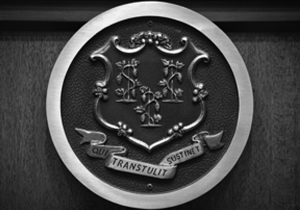Transportation Finance Panel Issues Final Recommendations
The panel convened by the Governor to develop both short- and long-term financing plans to repair and improve all major components of the state’s multi-modal and integrated transportation system today issued its recommendations. These proposals would serve to keep the State Transportation Fund (STF) solvent, eliminate major bottlenecks, expand our linkage with neighboring states, and create a truly modern, safe system as envisioned in the Governor’s 30-year, $100-billion Let’s Go CT!transportation initiative last session.
Among the recommendations, which would have to be approved by the Legislature, are:
- Motor Vehicle Receipts, Licenses, Permits and Fees – Many of these have not been raised since the early 1990s. The state should do an analysis as to what the rates should be, reset to current norms, and then increase these routinely to account for inflation. This will help to offset the operational costs of the Department of Transportation.
- Gasoline Tax – Flat for nearly 15 years, the state should increase the current gasoline tax by 2 cents a year for 7 years, which would bring the Gas Tax back to 39 cents (the level it was at prior to the roll-backs that occurred in the late 1990s and early 2000s). The tax could also be further increased in order to gain additional revenue to support the STF. While the gas tax is easy to implement, as cars become more efficient, the value of a penny will continue to decline over time.
- Sales Tax – The 2015 legislative session instituted an important new revenue source for transportation by ultimately transferring 0.5% of the 6.35% sales tax to the STF. The Panel recommends increasing the current sales tax by 0.5%, from 6.35% to 6.85%, and transferring this increment to the STF in order to provide a full 1% of sales tax revenue for transportation. Alternatively, the state could retain the incremental increase in the General Fund and move all motor vehicle-related sales taxes to the STF.
- Congestion Mitigation Tolling – The state should authorize the process to implement congestion mitigation all-electronic tolling systems on the major corridors to help cover the costs of several large projects and mitigate congestion at various times of day. Measures are available to reduce the financial impact on frequent commuters, local residents, and those crossing a very short distance into the state. We would note that CTDOT estimates that approximately 30% of such tolls will be paid by non-Connecticut residents and 24% by freight traffic. Connecticut is the only one of the 15 states on the Atlantic coast that does not have tolling, and is the only densely- populated state in the continental U.S. that does not have tolling.
- Value Capture and Rights of Way – With significant land held in trust for transportation purposes, there is significant potential to raise revenue from the Rights of Way; in addition, the state should seek to capture the increase in value of land near the transportation improvements, especially new rail and bus-rapid transit stations.
- Sponsorships and Advertising – CTDOT should look to sponsorships recently authorized by federal law changes, and better utilization of advertising contracts, to increase revenues to offset agency expenses.
The Chairman of the Panel, Cameron Staples, who formerly served as co-chair of the Legislature’s Finance Committee, prefaced the meeting by saying the earliest any of these proposals would go into effect, assuming they were approved by the Legislature, would be 2018. The one exception may be the Constitutional “lock box” that would ensure monies dedicated to transportation were used solely for eligible transportation projects. The Governor told the panel that he would not consider any of transportation revenue proposals until a lock bock is approved.
And finally, Senate President Marty Looney, D-New Haven, has said the issue of resurrecting tolls in CT will not be addressed in the upcoming session. Click here for a copy of the presentation.


